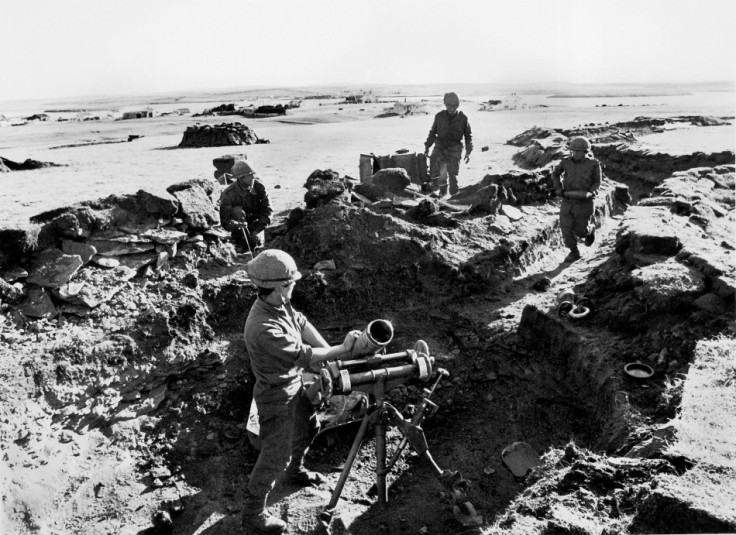Margaret Thatcher Warned Naval Cuts Could Lead to Falklands War

Margaret Thatcher was warned by senior Foreign Office officials that her government's naval defence cuts could lead to an Argentinian invasion of the Falkland Islands, previously unseen documents reveal.
Britain entered into a war with Argentina in a battle for the Falklands in April 1982, after the islands were invaded by Argentinian forces. The conflict lasted just 74 days, costing over 1,000 British and Argentinian lives.
The documents have been released by the National Archive under the "30-year rule", which requires records of cabinet meetings, government letters and memos to be released after that time.
Secret letters to Sir John Nott, Thatcher's defence secretary, from Lord Carrington, her foreign secretary, in June 1981 reveal concerns about maintaining Britain's naval presence around the Falklands in the South Atlantic in the face of the government's defence programme, which sought to cut and restructure Britain's defences.
Carrington's letter had been initialled "MT" in think black ink, with some sections underlined by the same pen, suggesting Thatcher studied the letter in detail.
"Although we continue to seek a solution to the dispute with Argentina, it cannot at present be said that a solution is in sight," Carrington wrote in a letter dated 5 June, 1981.
"Unless and until the dispute is settled, it will be important to maintain our normal presence in the area at the current level.
"Any reduction would be interpreted by both the [Falkland] Islanders and the Argentines as a reduction in our willingness to defend them."
HMS Endurance, a Royal Navy icebreaker located near the Falklands, was due to be decommissioned shortly before the outbreak of the Falklands War.
"If she is to be disposed of, it is essential not only that she should be replaced, but also that the replacement should be a vessel of similar type (ie, an icebreaker) for Antarctic work," Carrington wrote.
He warned that replacing the Endurance with a warship "might well be interpreted as provocative" by the Argentinians.
Thatcher Risked 'Prejudicing our National Security'
Another document released by the National Archive's details a meeting between the then first lord of the navy, Admiral Sir Henry Leach, and Thatcher on 8 June.
"The point [Leach] wished to emphasise most was the serious miscalculation which [the government] would be making if [it] disregarded the deterrent effect of a major maritime capability in peacetime and even in the opening phases of hostilities," the meeting's minutes read.
Leach had already written to Thatcher on 18 May, 1981, criticising the defence programme as "done in a rush".
"War seldom takes the expected form and a strong maritime capability provides flexibility for the unseen," he wrote.
"If you erode it to the extent envisaged, I believe you will undesirably foreclose your future options and prejudice our national security."
© Copyright IBTimes 2025. All rights reserved.






















